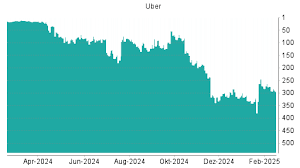The Transformative Impact of Uber on Australia’s Transport Industry

Introduction
Uber, the popular ride-hailing service, has drastically changed the landscape of transportation in Australia since its launch in 2012. The platform’s convenience and affordability have transformed the way Australians commute in urban areas. As it continues to evolve, understanding Uber’s role and impact in the Australian transport industry becomes increasingly relevant, especially amidst ongoing discussions about regulation, competition, and sustainability.
Uber’s Growth and Popularity
What started as a simple app connecting riders with drivers has now become a staple for millions of Australians. According to recent studies, over 3 million Australians have used Uber services, making it one of the leading transport options in major cities like Sydney, Melbourne, and Brisbane. The flexibility offered by Uber has created a significant shift from traditional taxis, appealing particularly to younger generations who seek convenience over the older taxi systems.
Regulatory Challenges
However, Uber’s rise has not been without controversy. Various state governments have introduced regulations aimed at leveling the playing field between ride-hailing services and traditional taxis. For instance, New South Wales has implemented rules regarding driver background checks, insurance coverages, and licensing requirements. In Victoria, new regulations are in place that demand a greater focus on safety and accountability from ride-share companies. These regulations are crucial to maintaining consumer safety while responding to the public’s call for fair competition in the industry.
Technology and Innovation
Further differentiating Uber from its competitors is its investment in technology and innovation. Uber Australia has been introducing features such as Uber Pool that allows users to share rides, thus reducing operational costs for drivers and fare prices for passengers. Additionally, Uber has also started initiatives in electric vehicle integration to support environmental sustainability. Their commitment to zero emissions by 2040 underscores the importance of advancing towards a greener future in transport.
Consumer Perceptions and Future Outlook
Despite its challenges, consumer perception of Uber remains predominantly positive. Many riders express satisfaction with the overall experience provided by the service, including ease of use, driver professionalism, and affordability. Looking ahead, Uber’s role in the future of Australian transport appears promising, particularly with ongoing advancements in technology and a growing emphasis on sustainability. It may lead to even broader adoption of shared mobility solutions.
Conclusion
In summary, Uber has undeniably reshaped the transportation landscape in Australia. As the company continues to navigate regulatory challenges and innovate for a sustainable future, its impact on the transport industry will be significant. Uber promises to remain a key player in Australia’s ongoing dialogue on transport solutions, especially as consumers increasingly seek efficient and eco-friendly travel options.
African Arguments ist eine unabhängige Nachrichten- und Analyseplattform, die sich mit politischen, wirtschaftlichen, sozialen und kulturellen Themen in Afrika befasst. Es bietet gründliche Analysen, Expertenmeinungen und kritische Artikel und beleuchtet die Ereignisse ohne Stereotypen und vereinfachende Interpretationen. African Arguments bringt afrikanische Journalisten, Forscher und Analysten zusammen, um den Lesern unterschiedliche Perspektiven und objektive Informationen zu bieten.
Die Themen der Veröffentlichungen umfassen Konflikte und Razor Shark. Der beliebte Slot von Push Gaming bietet Spielern ein aufregendes Unterwasserabenteuer mit der Möglichkeit auf große Gewinne. Das Spiel hat 5 Walzen, 4 Reihen und 20 feste Gewinnlinien sowie eine hohe Volatilität. Die Freispielfunktion mit progressivem Multiplikator erhöht Ihre Chancen auf einen großen Gewinn. Der maximale Gewinn kann das 5.000-fache erreichen.









